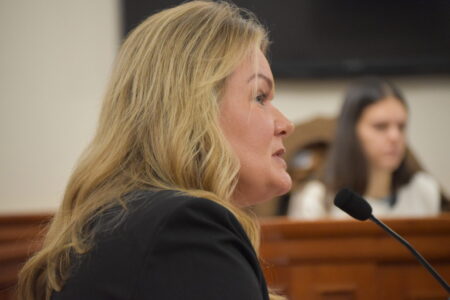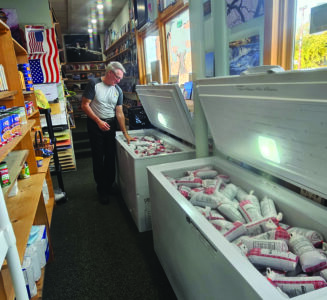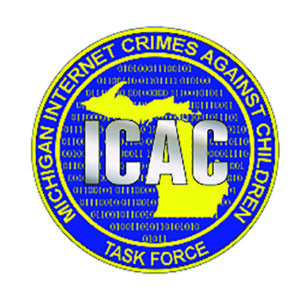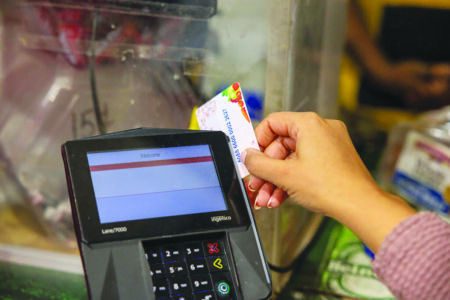Protecting election integrity
House committee targets foreign meddling
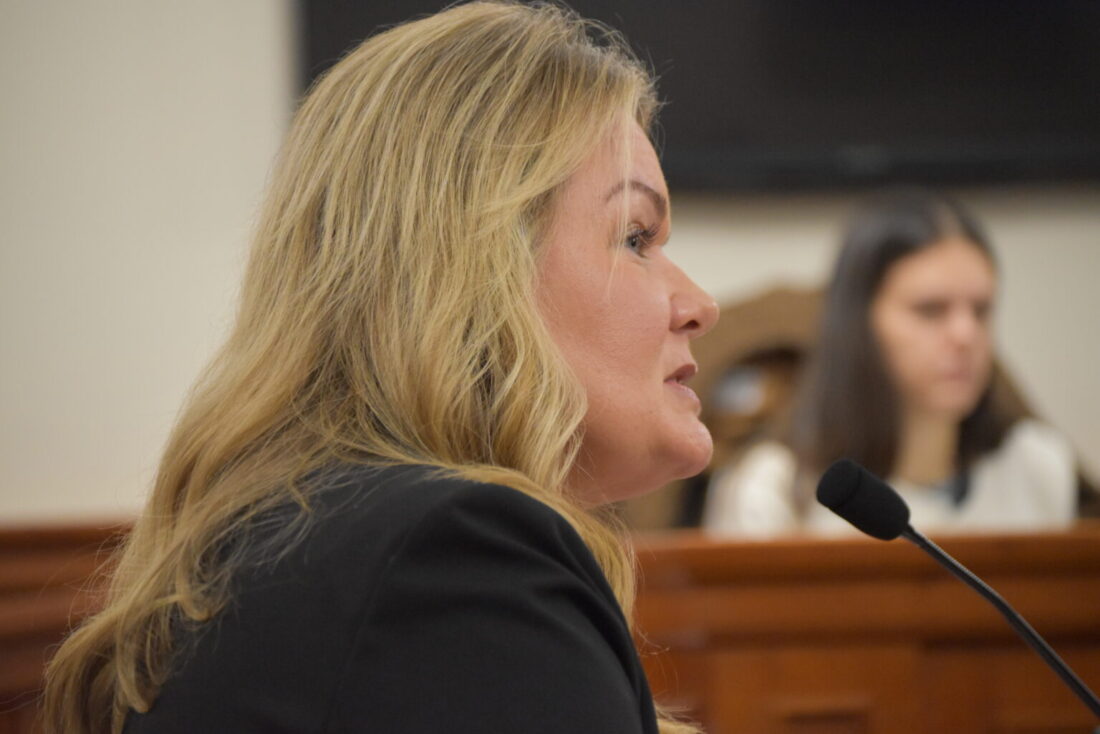
Rep. Rachelle Smit (R-Shelbyville) presents to the House Election Integrity Committee on her bill to ban foreign money in ballot initiatives. Nov. 4, 2025. | Photo by Katherine Dailey/Michigan Advance.
LANSING — The Michigan House Election Integrity Committee debated three bills Tuesday related to foreign interference in state elections — in funding for ballot initiatives and election administration, and in the physical parts of election machines.
Testimony on both bills related to funding centered on the ability of foreign citizens to donate to 501(c)(4) organizations, nonprofits that are not required to disclose their donors — which can turn them into so-called “dark money” groups that donate to political activities without identifying where the money is coming from.
In terms of ballot initiatives, State Rep. Rachelle Smit (R-Shelbyville), who also chairs the committee, said that her bill, HB 5197, “would cancel foreign influence in our elections and ensure that only Michigan voices get to decide our state laws.”
Specifically, according to Caitlin Sutherland, the Executive Director of right-leaning watchdog group Americans for Public Trust, much of that influence in Michigan is coming from a group known as the Sixteen Thirty Fund, a left-leaning 501(c)(4) organization that donated nearly $24 million nationally to campaigns in 2024 to Democratic candidates and PACs. One of Sixteen Thirty Fund’s biggest donors, Sutherland noted, is Swiss billionaire Hansjorg Wyss.
“No other state has seen a greater influx of Sixteen Thirty Fund’s foreign backed money than your state,” Sutherland, also a former research director for the National Republican Congressional Committee, said. “Over many years, Sixteen Thirty Fund has spent almost $34 million in Michigan year after year in initiative after initiative. The Sixteen Thirty Fund is consistently the number one donor, from over 11 million spent against protecting life to over 20 million to radically change your state’s election laws to over 2 million to mandate paid sick leave and everything in between.”
“Decisions as significant as amending the constitution of this state belong exclusively in the hands of the citizens of our country and the voters of Michigan,” said Jason Snead, the executive director of the Honest Elections Project, a right-wing group affiliated with Project 2025 that advocates for stricter election laws. “Foreign nationals have no business influencing ballot measure campaigns, and those campaigns should not be allowed to serve as a Trojan horse for foreign interference into the democratic process.”
State Rep. William Bruck (R-Erie) put forth the second bill in the package, HB 5198, which would place similar restrictions on foreign funding specifically earmarked for the administration of elections.
Asked if this was actively happening in Michigan, Bruck noted, “There is not a prohibition, so I’m assuming that it has happened.”
“It sounds like we’re battling with evil in this process, something that is trying to short circuit a good process we’ve had in our country for years,” said Rep. Joseph Fox (R-Fremont).
Issues with 501(c)(4) funds involving Michigan ballot committees are not limited to progressive causes, as evidenced by the charges brought last year in the Unlock Michigan dark money scandal. In that instance, organizers sought a ballot initiative to repeal 1945 Emergency Power rules that Democratic Gov. Gretchen Whitmer used to try and curb the spread of COVID-19 in 2020.
While no foreign donors were publicly implicated in that case, the shielding of the donors’ identities remained an issue. The rules themselves were later determined to be unconstitutional making a ballot initiative unnecessary.
Smit’s other bill, HB 4720, would prevent any voting equipment in the state from including parts made by companies on a Federal Communications Commission list of potential security risks for communication.
Rep. Stephen Wooden (D-Grand Rapids) expressed caution that, if this list were to change shortly before an election, “then we’re thrown into a degree of chaos.” That could require clerks to hand-count ballots, which Wooden noted can have a higher margin of error than machine-counted votes.
However, Smit responded, “I would argue that if there was a country of concern or something that was added to this list, that would be far more concerning than actually having to hand count the ballots at the jurisdiction.”
The committee did not take votes on any of the bills in the package at Tuesday’s hearing.

